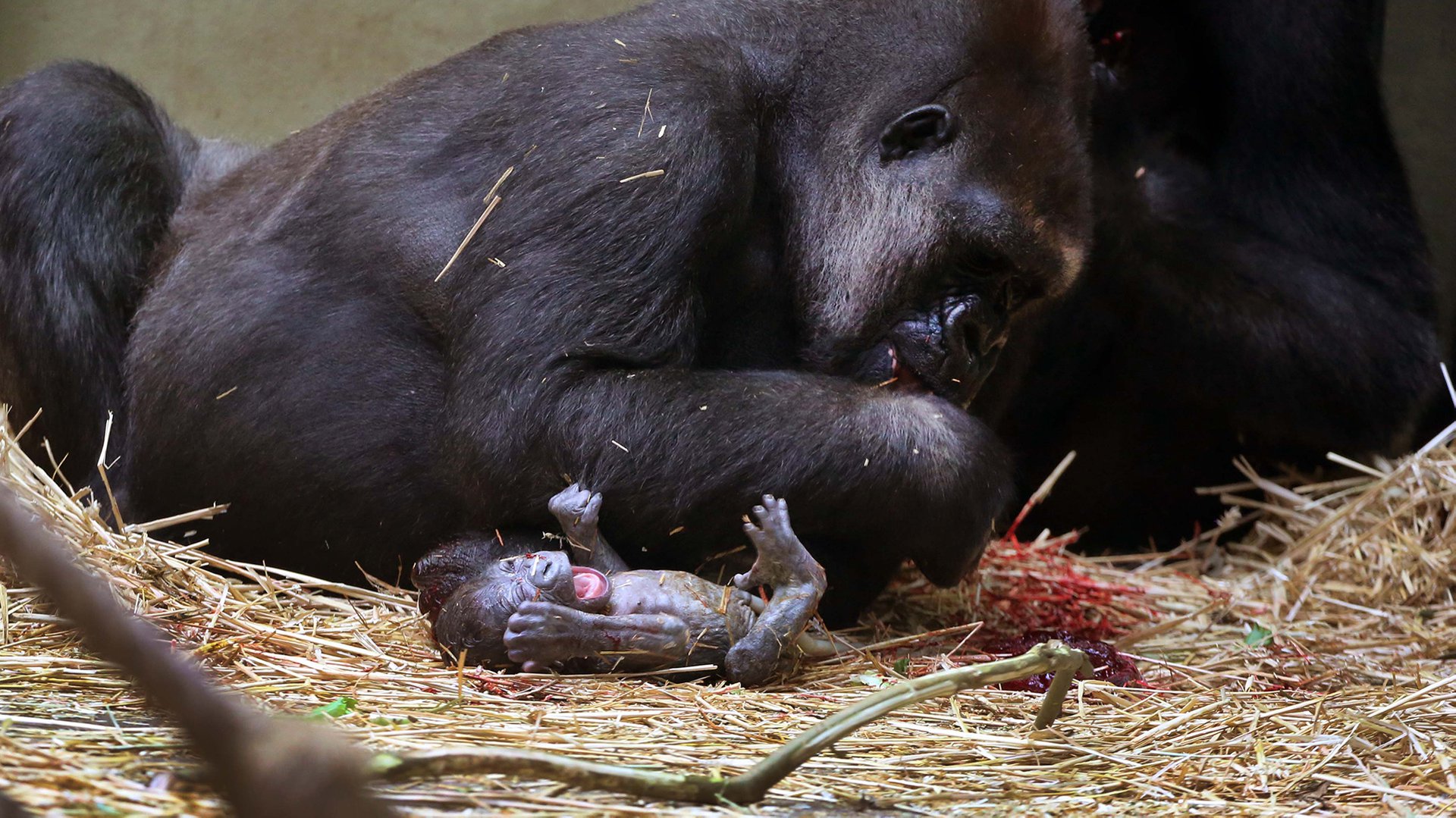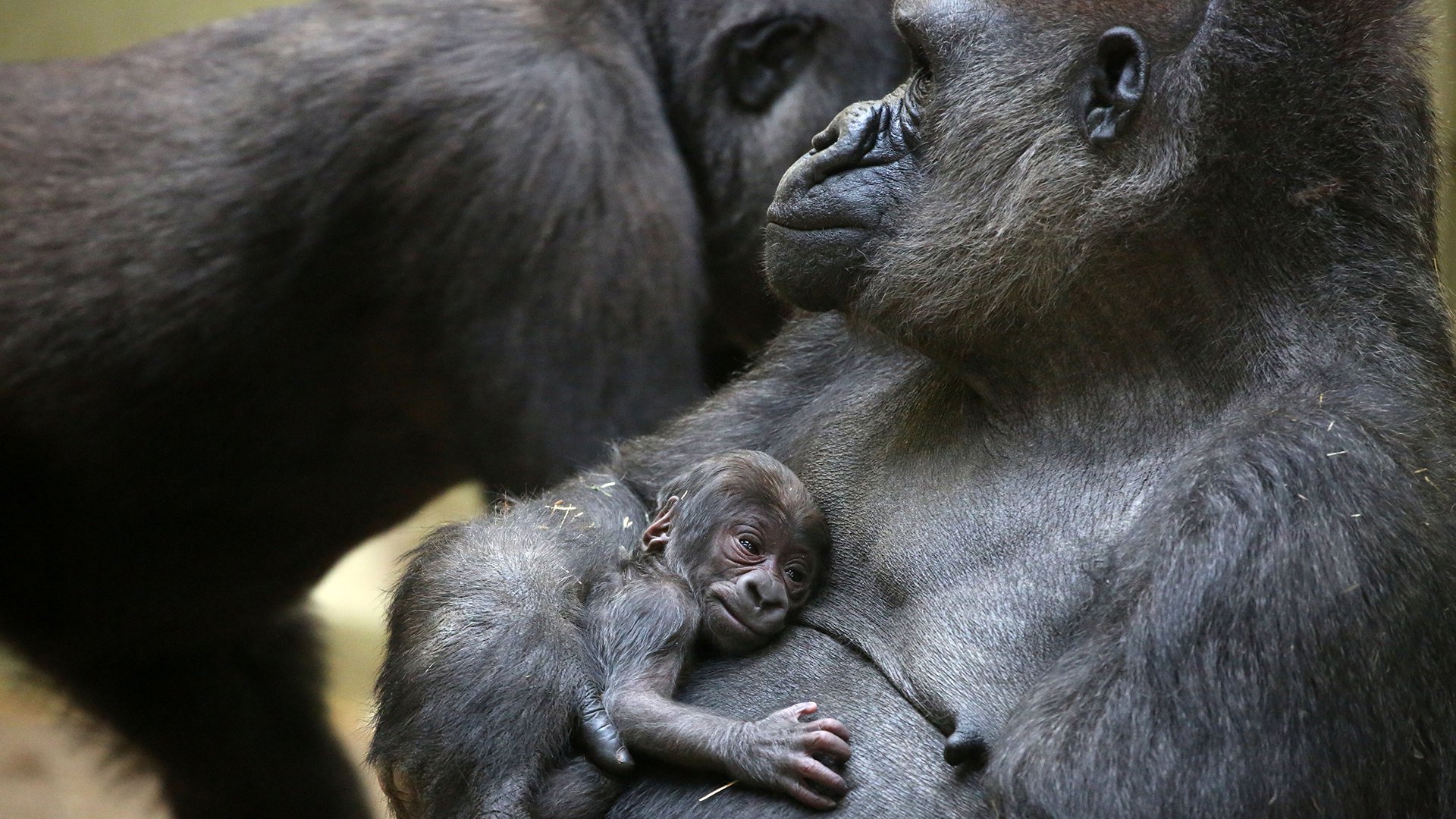
Gorilla born
First moments were suspenseful – Oct. 19, 2018
A western lowland gorilla has been born at ARTIS. Though the mother's waters broke early yesterday, it took another five hours before the baby gorilla was delivered in the Gorilla House at 1:45 pm. The first moments after the birth were suspenseful. Instead of picking up her newborn, the mother initially was more intent on examining and eating the placenta. Fortunately, she picked up the baby after this and it began to nurse. The sex of the baby gorilla is not yet known.
The birth attracted attention from the ARTIS gorilla troop all day long. Once the female's waters broke, the sweet odour told the gorillas that the baby was on its way. One of the other female gorillas remained by the side of the mother-to-be all day, while the troop's young males were quite interested as well. This occasion was the first time that the youngsters were old enough to be aware of a birth.
Harem
Gorilla troops are typically made up of five to fifteen animals. Each troop consists of a single dominant male, the silverback, and his harem: a number of adult females and their offspring. While there may be other, younger males in the group, the dominant male is the one who mates with females. The ARTIS gorilla troop consists of a silverback and three adult females. In addition to the newborn baby, the group also includes four other young males and a juvenile female. This baby gorilla's mother is experienced, as she gave birth to six babies in the past, one of which was stillborn. One of her other offspring still lives at ARTIS today.
Dependent on their mother
Baby gorillas go through a long period of development and total dependence. The young animal will be in constant contact with its mother up to about three years of age, at which point they become a bit more independent. Gorillas typically give birth every three to four years, following a gestational period of around 8.5 months. Among gorillas, maternal behaviour is not inborn; as a result, it is vital that first-time mamas have an opportunity to learn from other gorilla mothers. Through life in a troop, they are naturally exposed to processes such as giving birth, nursing and carrying a baby.

Baby gorillas are dependent on their mothers for a long time. Photo: ARTIS, Ronald van Weeren
Critically endangered
The western lowland gorilla (Latin name: Gorilla gorilla gorilla) is a critically endangered species. The major threats to the gorillas’ survival are poaching, disease, loss of habitat and climate change. Although there are laws against hunting and capturing gorillas in the Central African countries where the western lowland gorilla lives in the wild, none of the countries strictly enforce those laws. Gorilla meat is sold as 'bushmeat'. ARTIS participates in the European breeding programme for western lowland gorillas.
